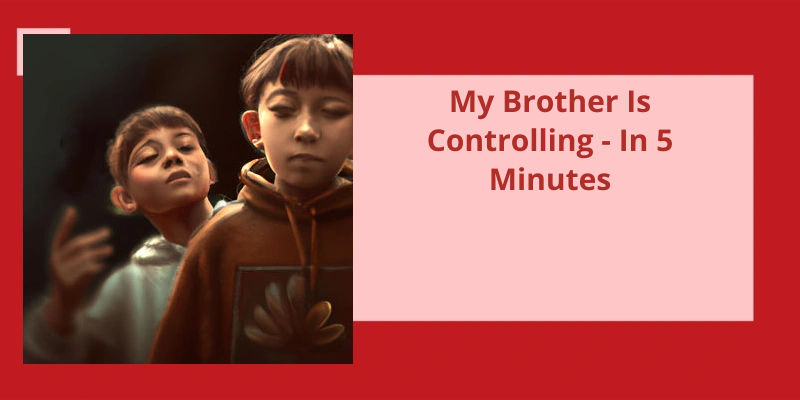What strategies do you use to manage your relationship with a controlling brother?
Dealing with a toxic sibling can be a difficult and emotionally draining experience. However, by following the 10 ways to deal with a toxic sibling, such as speaking up, setting boundaries, changing the opportunities, and not normalizing their behavior, you can take steps to protect yourself and your relationship with your sibling.
Taking the high road, trusting yourself, and seeking counseling are all important steps to take when dealing with a toxic sibling. It is important to remember that you are not alone and that there are resources available to help you cope with the situation. With the right approach, you can work towards a healthier relationship with your sibling.
What strategies do you use to manage a dominant sibling?
Parental authority is an effective way to deal with a dominant sibling. It is important to set clear rules and expectations for all children in the household and to enforce them consistently. This will help to ensure that the dominant sibling does not take advantage of their position and that all siblings are treated fairly.
Using parental authority to keep a dominant sibling in check is a great way to ensure that all siblings are treated equally and fairly. It is important to set clear rules and expectations and to enforce them consistently. This will help to ensure that the dominant sibling does not take advantage of their position and that all siblings are respected and treated with respect.
What causes siblings to become adversaries?
It is clear that siblings often fight due to a variety of reasons, ranging from jealousy and competition to external influences. It is important for parents to be aware of these potential causes in order to help their children learn how to manage their emotions and resolve conflicts in a healthy way.
Sibling rivalry is a normal part of growing up, but it is important for parents to be aware of the potential causes of fighting between siblings. By understanding the underlying causes of sibling conflict, parents can help their children learn how to manage their emotions and resolve conflicts in a healthy way.
What strategies do you use to manage your elder sister’s domineering behavior?
Having good, well defined boundaries is essential for maintaining healthy relationships. It is important to decide whether a person is going to be in your life or not and to stand by that decision. Additionally, it is important to not try to fix that person or convince others how they should view or interact with them. Above all, it is important to take care of yourself.
Overall, having good boundaries is essential for maintaining healthy relationships. It is important to decide whether a person is going to be in your life or not and to stand by that decision. Additionally, it is important to not try to fix that person or convince others how they should view or interact with them. Taking care of yourself is the most important thing to remember when it comes to having good boundaries.
A hostile sibling is someone who is unfriendly or aggressive towards their brother or sister.
Hostile sibling relationships are characterized by high levels of hostility and low levels of warmth. These relationships are often marked by physical and verbal aggression, which can lead to long-term negative consequences for both siblings. It is important to recognize the signs of a hostile sibling relationship and take steps to address it in order to prevent further damage.
The effects of a hostile sibling relationship can be long-lasting and damaging. It is important to recognize the signs of a hostile sibling relationship and take steps to address it in order to prevent further damage. By creating a safe and supportive environment, siblings can learn to build a more harmonious relationship and foster a healthier relationship with each other.
Conclusion
In conclusion, my brother's controlling behavior is a cause for concern. It is important to address this issue in a constructive way, so that it does not become a bigger problem. It is important to talk to him about his behavior and to set boundaries. It is also important to seek help from a professional if the situation does not improve. With the right support, my brother can learn to manage his controlling behavior and develop healthier relationships.






